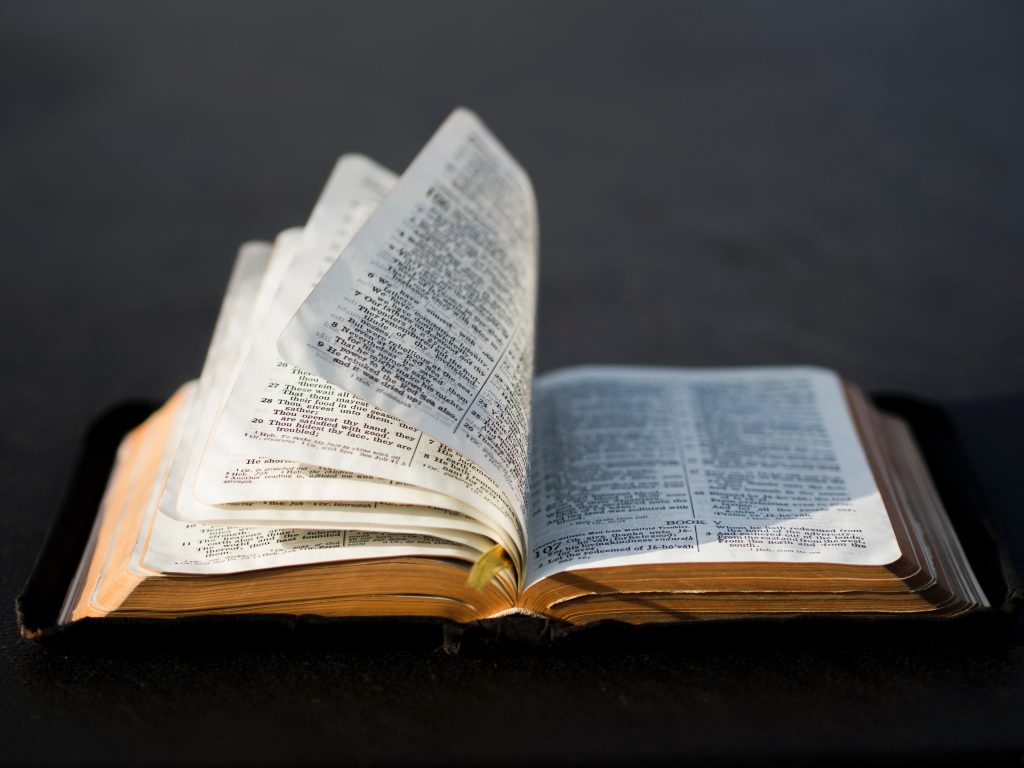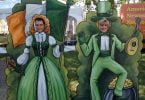
by Joe Bollig
My motorcycle is like the Bible in at least five ways:
1.It’s old.
2. It has a lot of parts.
3. I don’t spend as much quality time with it as I should.
4. I rely on the experts for help with the complicated parts.
5. The shop manual seems to have been translated from the original Hebrew.
OK, enough of that.
Once someone asked me, “What is your favorite book of the Bible?”
That got me thinking. I’ve always liked Genesis, because it has a lot of the foundational stories that got prominent play in my catechism lessons and children’s Bible story books I read as a kid.
I’ve always liked Exodus, too, because it was the basis of one of my all-time favorite movies, “The Ten Commandments,” staring Yul Brynner and Charlton Heston.
And of course, there are the four Gospels, which have all the great stories about Jesus.
Only insomniacs like Leviticus and Numbers.
Ultimately, I could never choose just one book of the Bible that I liked more than the others. Like my motorcycle, you need all the parts in order for the Bible to work. It’s like asking which part you like more, the clutch or the throttle.
I will say, however, that I’ve acquired an affinity for the Book of Ezekiel.
Ezekiel, born about 623 B.C., is one of the major prophets of the Old Testament, as well as being one of the later prophets. His full name is Ezekiel ben-Buzi (son of Buzi), member of a priestly family of Jerusalem in the line of Zadok.
When King Nebuchadnezzar of Babylon captured Jerusalem in 597 B.C., Ezekiel and other important Jerusalemites were carried off into captivity.
Ezekiel never saw his homeland again, but he played a crucial role in keeping the Jewish faith alive through his preaching. But he wasn’t just a preacher; he was a mystic. His visions, which he had between 593 and 571, form the basis of the book named for him.
In his article about the book on the website myjewishlearning.com, Dr. Solomon B. Freehof writes that “The Book of Ezekiel has always been a problem book.”
He writes that the rabbis who were establishing the Jewish canon of Scripture in the second century A.D. had a lot of doubts about the book, because some parts contradicted laws in Leviticus. They also had problems with some of the weird, mystical imagery, so they said the reading of certain passages should be restricted to top-level scholars.
I’m not going to get into the nuts and bolts of Ezekiel, because I’m not a biblical scholar and don’t play one on TV.
But I can tell you about the parts I find interesting:
• Ez 2: 17-21 speaks of the prophet as a “watchman for the House of Israel.” Like Ezekiel, all Christians have a responsibility to warn others about the danger of sin, and if we don’t, we will be held responsible because we could have saved them.
• Ez 11: 19 “I will give them a new heart” and 36:26 “a new heart and a new spirit” are prophesies of the New Covenant of Jesus echoed in Heb 8:10.
• Ez 36:25 foretells baptism, and 36:27 foretells the indwelling of the Holy Spirit, and 37:12 speaks of the resurrection.
• Ez 33:10-20 is packed with profound revelations. It says that God takes no pleasure in the death of the sinful, but rather his conversion. Further, it says the virtue a person practices will not save on the day they sin. And it says God judges everyone according to what they have done.
• Ez 33:30-33 reminds me that times change but human nature doesn’t. This part warns about false popularity and the hypocrisy of people who are eager to hear the Word of God but do not obey, because, “For them you are only a ballad singer, with a pleasant voice and a clever touch.” This one is for all you frustrated homilists and catechists who wonder if the message is getting through.
• Ez 34:18-21 is a warning for all of us that we have a responsibility to others who are in some way weaker and more vulnerable than us, and “looking out for Number One” to the detriment of others will earn us a smackdown from God. “Was it not enough for you to drink the clearest water that you had to foul the remainder with your feet?”
• Ez 34:1-10 seems especially appropriate in this time of the renewed scandals of clerical sexual abuse and other kinds of sin. On one level it prophesies the first coming of Jesus to personally shepherd believers. But these verses, which pronounce “woe to the Shepherds of Israel,” can also serve as a warning to contemporary church leaders who exploit and fail the People of God.
“You have fed off their milk, worn their wool, and slaughtered the fatlings, but the sheep you have not pastured.”






